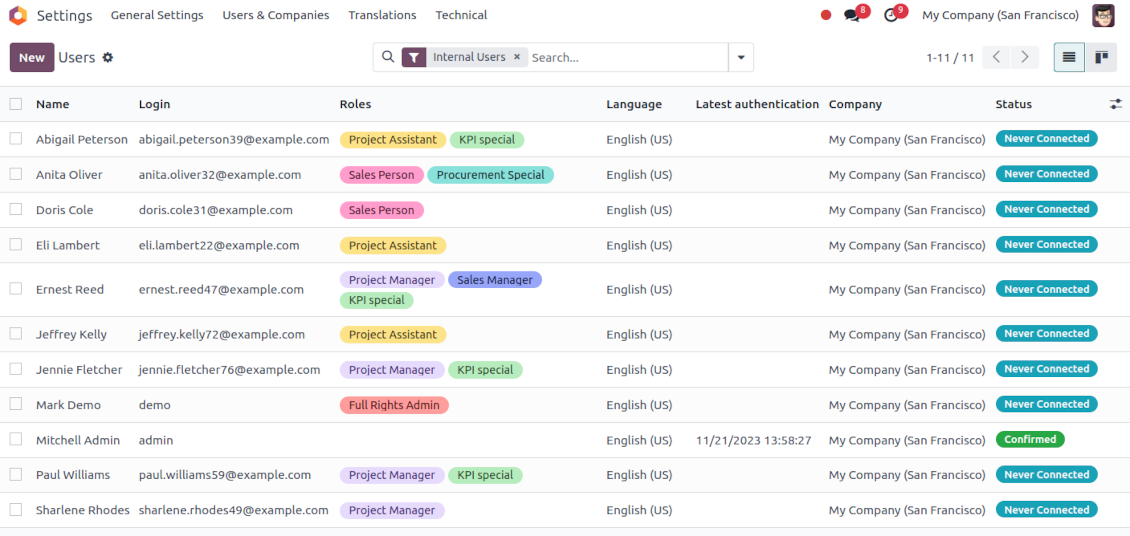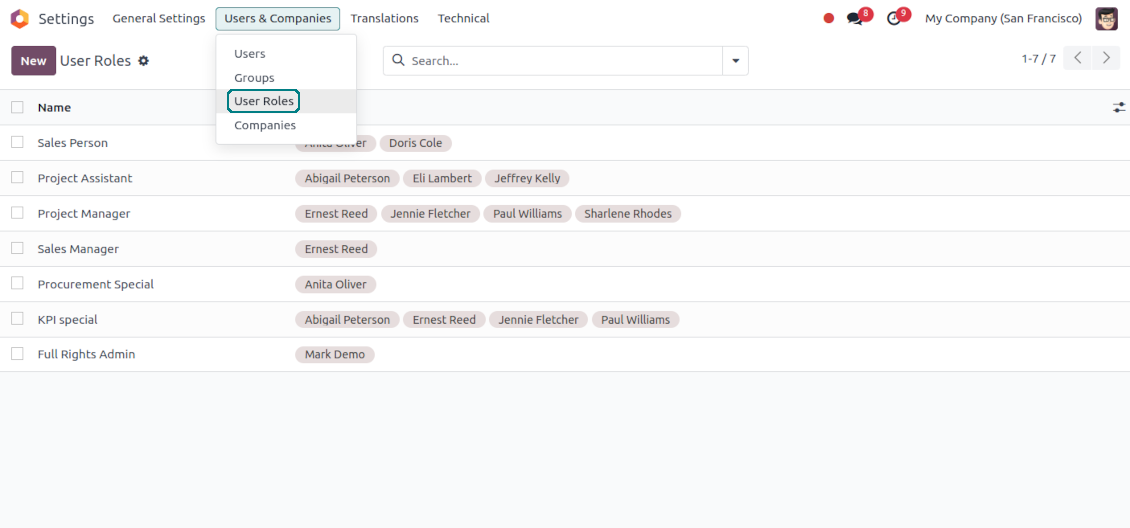Security User Roles v.17
The tool combines users in roles and simplifies security group assigning. Access group management. Users mass updating
As your Odoo database grows, the more you think of how to manage users efficiently. Each new app installed and each employee hired become a headache for Odoo administrators. Which rights should have a sales manager? What checkbox have I again missed? This is the tool to forget about such questions. The app is to manage users from a role perspective not based on security rights. Simple to start, easy to maintain, and safe to administrate.
2 clicks to apply user rights
To add access rights it is enough to assign a role for a user. Odoo will automatically add required security groups. No need to always remember all checkboxes!
Multiple roles per user
Assign security roles in any combination to reflect employee Odoo rights. As precise as it is needed. Or leave roles empty to administrate very specific users manually
Safe in changing environment
To change the rights of multiple users it is enough to update a security role. It takes a few seconds to reflect changes in policies or in the set of installed apps. Fast and minimum risks of errors!
Simple to start
Security roles are managed absolutely in the same way as you do for standard Odoo users. You may even create roles based on existing users or, vice versa: a user based on a role
Dynamic updates
The app lets configure advanced rules to automatically add/remove users to a role. For example, to temporarily grant rights for a substitute employee, or block access for vacation time
All modules access groups
The tool works with access groups introduced by any modules: Odoo standard, third-party, or custom ones. The logic and settings are almost the same as in configuring users.
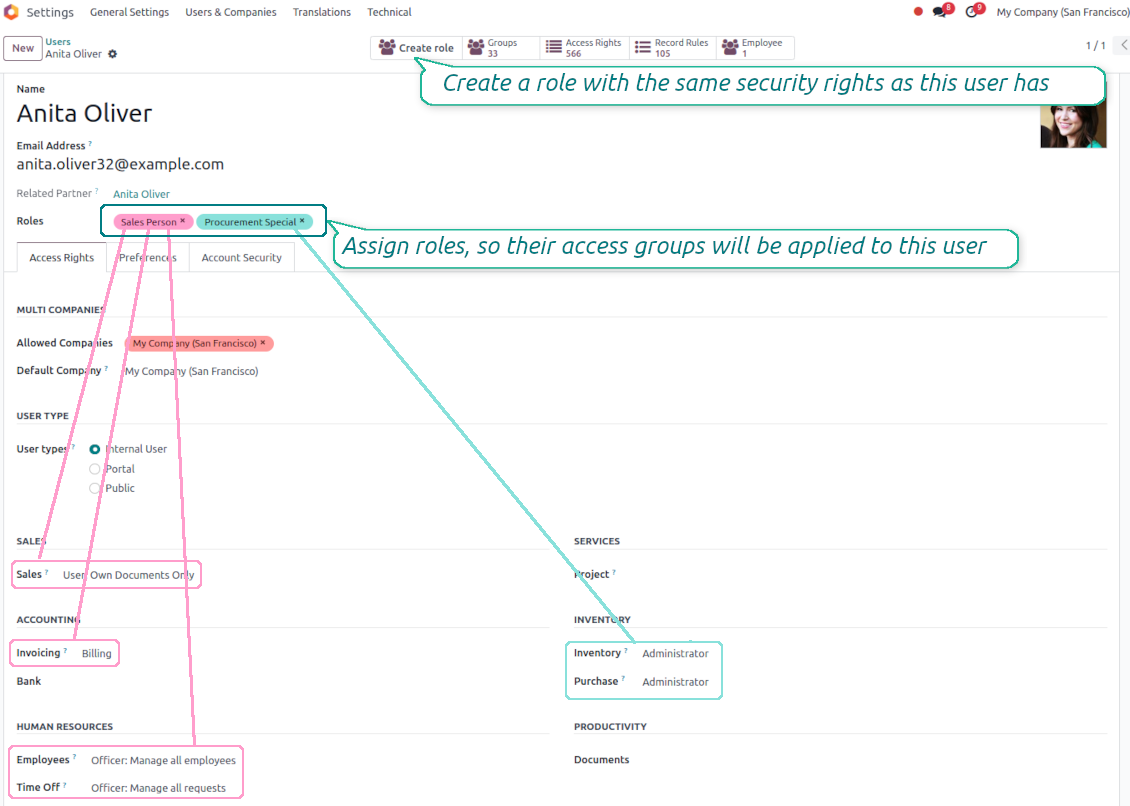
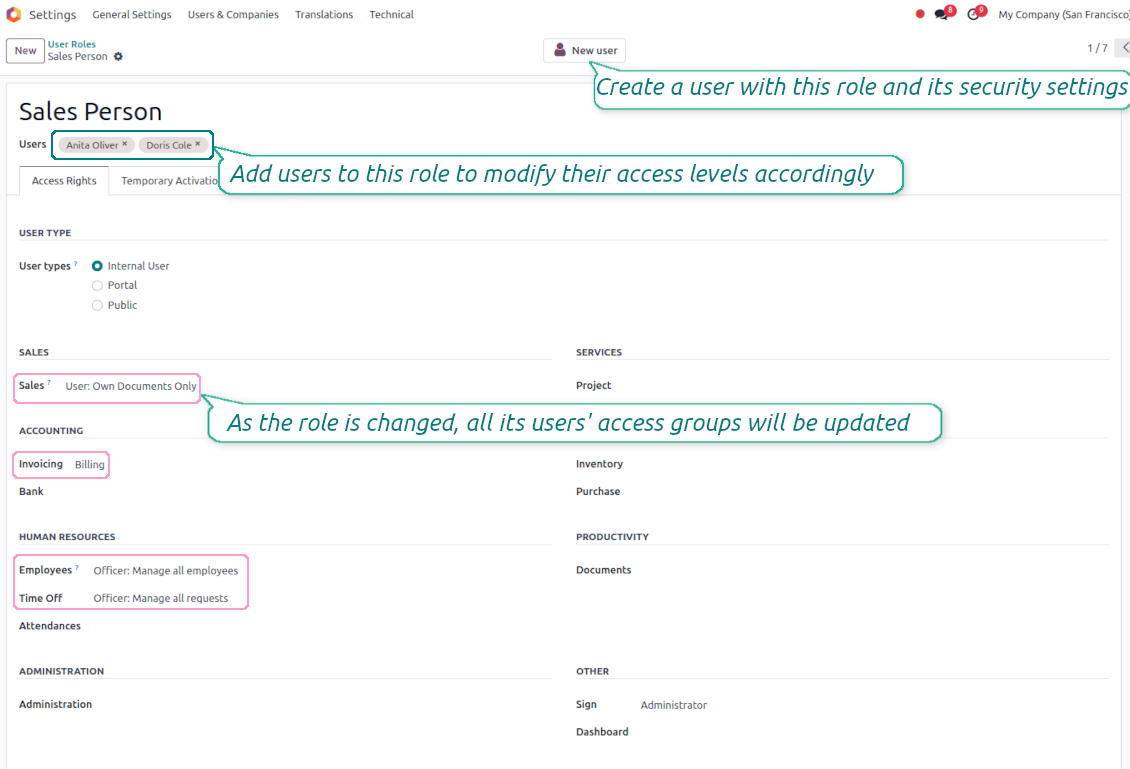
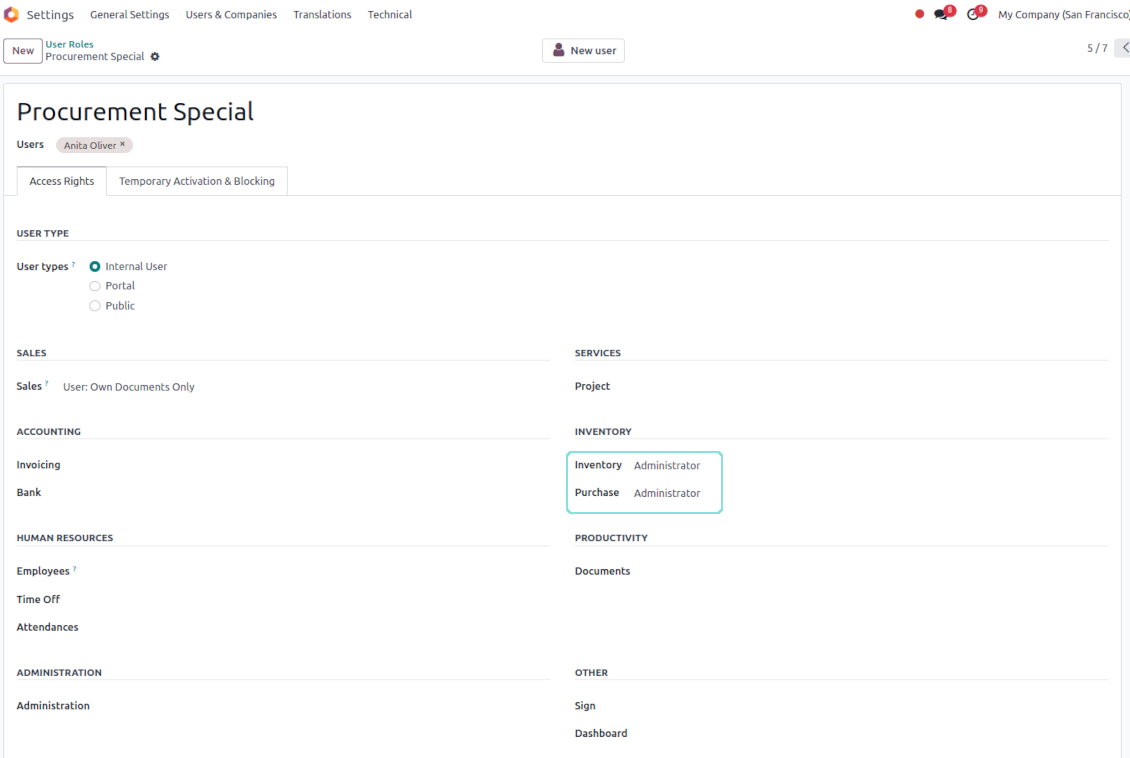
Very powerful but simple
Provides excellent usability for a complicated topic.
Temporary user blocking and activation
-
Set up advanced rules to assign a user for a role temporarily or, vice versa, to block a user for a specific period
-
To that goal, go to the tab 'Temporary Activation and Blocking' and add a line. Each user might have a single linked rule per a role
-
When you block a user for some period, it means that she/he would not have the role for that time. During other intervals, this user would be re-assigned for this role. For example, use such rules for vacations and other types of time-offs
-
When you activate a user for some intervals, it means that she/he would have the role groups only during those periods. At other times, such a user would not have this role and access rights. For instance, it might be essential for a substitute or short-term employees
-
Each rule might have a few blocking or activating periods. Then, if any of those are suitable now, the rule would take place. For example, you may assign a few vacation intervals for a single user
-
The app will periodically check the rules and will block/activate users for roles when that is assumed by the rules. You may change the frequency of checks under the menu Settings > Technical > Automation > Scheduled Jobs > the action '[Security User Roles] Activate/Block Users for Roles'.
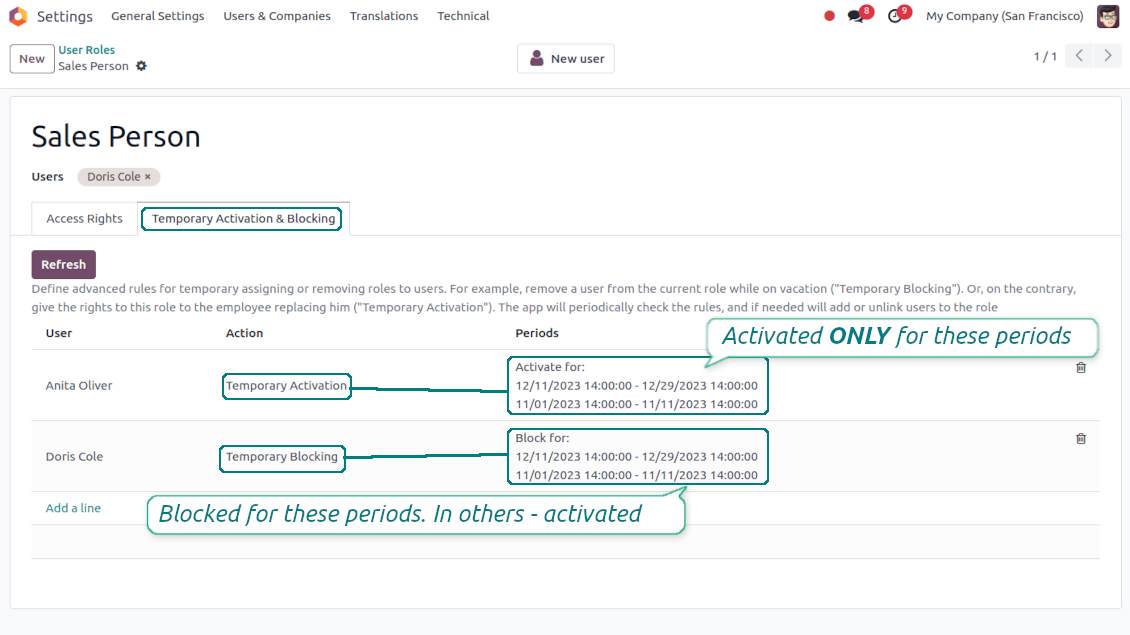
Odoo demonstration databases (live previews)
For this app, we might provide a free personalized demo database.
You do not need a phone number or credit card to contact us. You should only pass a short email sign-up, which does not take more than 30 seconds.
By your request, we will prepare an individual live preview database, where you can apply any tests and check assumptions for about two weeks.
Bug reporting
If you encounter bugs or inconsistent behavior, do not hesitate to contact us. We guarantee to provide fixes within 60 days of purchase and are intensely interested in improving our tools even after this period.
You do not need a phone number or credit card to contact us. You should only pass a short email sign-up, which does not take more than 30 seconds.
Please include as many details as possible in your request: screenshots, Odoo server logs, a full description of how to reproduce your problem, and so on. Usually, it takes a few business days to prepare a working plan for an issue (if a bug is confirmed) or provide you with guidelines on what should be done (otherwise).
Public features requests and module ideas (free development)
We are strongly motivated to improve our tools and would be grateful for any feedback. If your requirements are of public use and might be efficiently implemented, the team will include those in our to-do list.
Such a to-do list is processed regularly and does not assume extra fees. Although we cannot promise deadlines and final design, it might be a good way to get desired features without investments and risks.
You do not need a phone number or credit card to contact us. You should only pass a short email sign-up, which does not take more than 30 seconds.
17.0.1.1.6
- The issue with the untranslated warnings has been fixed.
17.0.1.1.4
- Let users handle their notification preferences without reassigning that after the roles' updates.
17.0.1.1.3
- The mechanic to update user groups based on roles is optimized to catch unexpected errors.
17.0.1.1.2
- The app gets its own configuration page.
- The feature to optionally show technical user groups on roles' forms without developer mode is added.
17.0.1.0.5
- The app is published to version 17.
The tool to flexibly structure Odoo attachments in folders and synchronize directories with cloud clients: Google Drive, OneDrive/SharePoint, Nextcloud/ownCloud, and Dropbox. DMS. File Manager. Document management system
398€The tool to build a deep and structured knowledge base for internal and external use. Knowledge System. KMS. Wiki-like revisions.
248€The tool to set up KPI targets and control their fulfillment by periods. KPI dashboards. Dashboard designer. KPI charts
The tool to automatically synchronize Odoo attachments with OneDrive files in both ways
487€The tool for time-based service management from booking appointments to sales and reviews
The tool to automatically synchronize Odoo attachments with Google Drive files in both ways
487€The tool to plan, share and control employees shifts in a form of weekly timetables. Work schedule. Work shift calendar
Partner color coding to score contacts and make rational decisions in any business area. Color codes. Customer scoring
38€